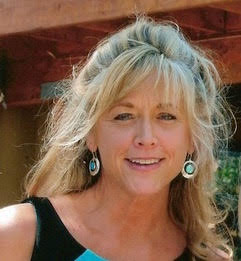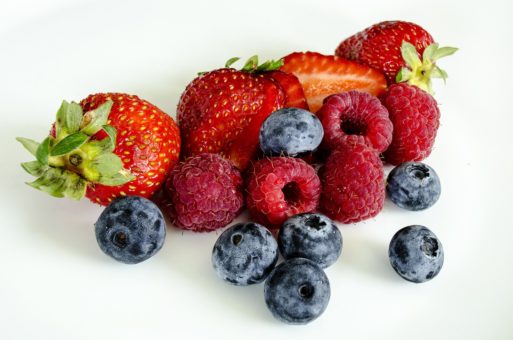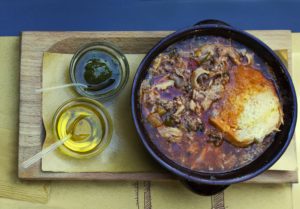Today SevenPonds speaks with Frances Holmes, a certified nutrition consultant and integrative grief practitioner. She specializes in helping people change their diets to improve their quality of life and also works with the bereaved. Frances’ practice is based on the fact that many people dealing with grief and loss don’t realize that their nutrition and eating habits have a huge impact on how the process unfolds.

Credit: Frances Holmes
Lucas Morgan: What are your personal and educational backgrounds?
Frances Holmes: I am the seventh of nine children. My mom died when she was 58. In fact, I turned 58 this year, so it has been an interesting year of feelings. Cancer runs in my family. My dad had cancer as well, which he died from, and my oldest sister is a breast cancer survivor. So that’s what put me on the trajectory for nutrition and lifestyle. At one point I thought, “How am I going to navigate these genes I have in my body?”
I started working on nutrition on my own, thinking I was doing a good job. Then years later I was introduced to a dentist who had a couple of nutritionists working in the office, and I loved what they were doing. It really resonated with me. They were students at Bauman College. Bauman is a holistic, nutrition and culinary school. So I attended their nutrition educator program, and also followed up with a nutrition consultant program. I graduated in 2006. I’ve also done some continued education with supplement companies.
Lucas: What kinds of educational opportunities do those brands offer?
Frances: They put on a lot of extracurricular activities. And many times they will put on programs, seminars to help us understand the body on a more holistic level (body, mind, spirit) and also on the functional level. Essentially, they focus on how all the systems of the body work synergistically.
Lucas: How did you get into the realm of using nutrition to help those dealing with grief and loss?
Frances: During my educational journey, about five years ago, I was experiencing a lot of loss. I had a very good chiropractor, who was very intuitive, who told me, “Your body is in grief.” And she connected me with a woman named Lyn Prashant who does something she calls “degriefing,” which is a bit of a play on words. I worked with her, and through my journey with my own grief, my own loss, I decided that nutrition plays a huge part in all this. And I realized that if you are not watching your nutrition, you can really exacerbate your grief symptoms.
Lucas: What is the initial process when someone reaches out to you? I would assume each person’s program is pretty different.
Frances: Definitely. We really have to customize the program. For instance, if you and I present together, and have the same issue, maybe an IBS issue, it will present itself differently in my body than in yours. Number one, that’s because you’re a man and I’m a woman. Number two, it’s because you are Lucas and I am Frances. So it is not a cookie-cutter approach. I first talk to the person for a complimentary 20 minutes or so to see if it’s a good fit for us. There are a few areas I may not feel comfortable with, and I may send them to someone else who may be better equipped to help them. From there we have an initial intake interview that is very thorough. I will get a history, from the time the person was born to where they are now.
Lucas: What are some things from our past that can impact us today?
Frances: Everything that’s happened to us is connected, whether it was many years ago or right now — even how you were born. Were you born vaginally or via Cesarean section? It’s amazing that how you came into the world has an impact. Also growing up, what was happening to you? How were you doing in school? If someone has had an ongoing health issue, like heartburn, when did that first start? Most people will say, “Oh that’s what I’ve always had, so for me this is normal.” But that’s not the case. That’s what is your normal, but how can we fix that? How can we make it a little better, and maybe fix it entirely?
And so it’s looking at the interconnection of all the different body systems. Grief affects the endocrine system. The endocrine system is very tightly regulated and works very synergistically with the nervous system.
 Lucas: In what ways can a more personalized, nutritional diet help someone cope with immense grief?
Lucas: In what ways can a more personalized, nutritional diet help someone cope with immense grief?
Frances: What happens is that food can become our best friend or our worst enemy. Some people will eat and eat and eat, and others will not eat at all. Some people have no appetite, but others try to soothe themselves through food, so they will eat simple carbohydrates, lots of sugars, things like that. Those foods give a sense of relief for a short time because they increase your serotonin, but it is very short-lived. The withdrawal from that is awful. And now you’re in a vicious cycle.
Nutrition can also help with the somatic aspects of grief by properly balancing the blood sugar. Many of the symptoms of low blood sugar look much like the common symptoms of grief and loss. So if my blood sugar dips, my grief symptoms are going to escalate. And if somebody is not eating or hungry, the question becomes, how can we get them to eat little bits of food so that they make the connection that when they do eat something, they feel better.
Lucas Morgan: I see you’ve been trained as an integrative grief practitioner. Obviously, nutrition would be included, but what other kinds of things are involved with that?
Frances Holmes: So we will integrate lifestyle management, talk therapy, body work (massage, acupuncture, etc.), the use of art therapy, essential oils and also yoga to help people balance out the way that grief lands on the body. We will also use what’s known as “psycho-somatic semantics.” This is, as it relates to degriefing, “the use of language as a therapeutic tool to evoke a desired physical response, encouraging a relief of grief held by the body.” So, using language (semantics) to enter the mind (psyche) to affect the body (soma). We are intentionally selecting words to affect changes similar to those induced by certain physical treatments.
Lucas: Do you ever work with families, or just individuals?
Frances: I have not worked with families yet, but that would be an interesting dynamic. I’m thinking about when my mom died, you know. She had nine children. So nine people lost their mother. And each one of us had a different relationship with her. There were times when I really needed to reach out, but I was afraid to because I thought that if the other brother or sister was having a good day, I didn’t want to bring them down because I’m sad.
But it would be good to know that you could support one another. Sometimes we tend to not reach out for help because we’re afraid of triggering other people. From my work, what I’ve come to learn, is that we can only be with somebody in their grief to the degree that we’ve dealt with our own. It makes us uncomfortable not to talk about it, because we don’t want to make people feel awkward.
But that’s exactly what a griever needs: to be heard. When you’re with family, they may not want to hear the story over and over again. But that’s what a griever needs to do in order to defuse or regulate those feelings.
Lucas: That is actually one of our main goals at SevenPonds. Essentially, to change the way people think and talk about death and grief, to make those issues more acceptable topics to discuss and be open about. Because so many people just suppress those feelings and avoid talking about them, not knowing that they are making matters worse.
Frances: Right. And what they don’t understand is that years later, what they’re often going through is suppressed grief. Also, new grief triggers prior losses. Losses don’t line up; they aren’t linear. It’s not, “one plus one equals two.” It’s much more like, “one plus one equals ten or 11.” Grief shatters and scatters linear thinking.
There are also secondary losses, another part that many people are unaware of. Sometimes these are more significant than the primary loss. The primary loss happens once. For instance, my mother died one time. But every year her birthday comes up, and there’s another holiday spent without her. Every time there’s some type of historical landmark in my life, she is not there. The feeling comes back again and again.
Lucas: Are there certain kinds of foods to avoid when dealing with grief?
Frances: Here’s something I’ve come to realize: there are times and places to eat foods that are not as healthy — those comfort foods, the desert foods, that mac and cheese, the ooey-gooey delicious things that we tend to gravitate towards when we’re just not feeling right. The problem is that those foods are loaded with very inflammatory ingredients that really trip us into major digestive issues. And some food sensitivities may come out that we aren’t really aware of.
In America, when somebody dies, we bring out “the casserole brigade.” Those are loaded with lots of gluten and dairy. If you bake cakes, they contain sugar and more gluten and dairy. Those things can be very problematic for many of us even though we don’t realize it. We might be sensitive to these ingredients, and if we’re eating them a lot, it can really exacerbate symptoms of the digestive tract and the endocrine system. This in turn affects our sleep, productivity, focus and energy.

A nice stew can be beneficial for a grieving person
Lucas: What are some foods you would recommend people eat?
Frances: I’d suggest brewing up a nice batch of stew for somebody, or a big pot of soup, because we can reheat those things easily. And those dishes have a lot more vitamins, minerals and nutrients, and will be less allergenic than casseroles and cakes. If you go visit someone who’s grieving, buy them a batch of vegetables, stick them in a stock pot and brew up some mineral broth or bone broth. These would be very soothing and nourishing for them.
Lucas: Have you ever worked with cancer or terminally ill patients to help improve their quality of life through nutrition?
Frances: Yes, a few of them, helping them to understand who the villains are that are promoting the cancer growth in the body.
My specialty is helping people transition away from the “Standard American Diet,” or the SAD diet, into eating for health. I try to help people understand the progression towards eating more for health. Nothing impacts us more than the foods we eat every day. We are a society of obesity; children have diabetes. And this is the sad thing. This is the first generation in which many people are going to die before their parents. This goes out of the natural order, and unfortunately that’s where our diets are leading us.
Many of the foods we don’t like to give up, we’re addicted to. They have drug-like effects on our brains. We need to balance our brains with food and nutrients. When we eat the Standard American Diet, we are eating fabricated foods, processed foods, foods that do not have the nutrients we need. We do get those necessary nutrients from produce, meat, good fats and the right carbohydrates.
Lucas: Do you have any quick tips, regarding nutrition or otherwise, you’d like to offer our readers if they are dealing with the loss of a loved one?
Frances: I would say be sure to reach out and find somebody you feel comfortable with to tell your story. Be willing to talk about it and be heard. Whether it be a clergy member, a family member, a close friend, a therapist, somebody to hear you.

Credit: francesholmescnc.com
Make sure you eat within an hour of waking up, even if it’s something small. This will balance your blood sugar, which is low when you wake up in the morning. If you can, have some protein. This could be an egg or two, or a smoothie that’s been made with protein powder, berries and spinach.
If your energy dips later in the day, eat something with good fat, carbs and protein in it. Maybe an apple and some nuts, or celery and hummus. These are blood sugar regulators that will keep our blood sugar even. This can also help lower cortisol production. Higher cortisol levels exacerbate our grief symptoms.
Take some time for yourself. Let yourself cry. The more we stuff it, the worse it gets for our body. Studies have shown that tears release the muscles that grief holds so tightly. It’s a nice relief valve. Grief is the loss of something you were attached to. If there was no attachment, there’d be no grief.
Lucas: Thank you so much for taking the time to speak with me, Frances. I’ve learned so much from our conversation!
Frances: You’re very welcome Lucas! It was great talking with you.

 How Does Nutrition Affect The Bereaved?
How Does Nutrition Affect The Bereaved?


 Final Messages of the Dying
Final Messages of the Dying
 Will I Die in Pain?
Will I Die in Pain?















